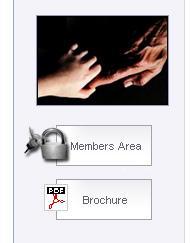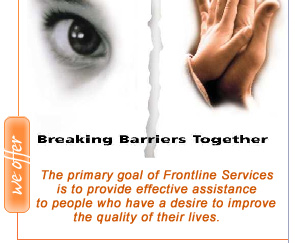What is a �Behavioral Consultant� and How is This Different From a Psychologist?
These questions are often asked by people trying to find a behavioral consultant for a family member, a friend, or someone else with mental retardation or another developmental disability for whom they provide support. They sometimes come up because many people are not aware that the majority of psychologists are not qualified to serve as behavioral consultants. This is because many do not have the specialized training and experience in applied behavior analysis or behavioral psychology and mental retardation/developmental disabilities (DD/MR) needed to provide appropriate and effective behavioral treatment for people with DD/MR. On the other hand, some people who do have the appropriate training and experience have graduate degrees in areas other than psychology, such as special education or human development. Unfortunately, in most states at present, almost anyone can legally call him or herself a �behavioral consultant.�
These issues have been a source of confusion and frustration for many consumers. This flyer was prepared to help you make an informed choice of a behavioral consultant for a person with DD/MR or yourself. It was developed by representatives of three major professional organizations. They are the Psychology Division of the American Association on Mental Retardation, the DD/MR Division (Division 33) of the American Psychological Association, and the Association for Behavior Analysis. Each of these organizations has a primary focus on the issues presented here.
Don't All Psychologists Have The Same Training?
No. Just like medical doctors (MD's), many psychologists have specialized training, but some do not. For example, all cardiologists (heart specialists) are medical doctors, but most medical doctors are not cardiologists. In the same way, all psychologists have graduate training in psychology, but many do not have training and supervised experience in applied behavior analysis, which is the specialization needed to be an effective behavioral consultant. Put another way, some psychologists are qualified to provide behavior analytic assessment and treatment services, but many are not. And as mentioned above, some people who are qualified to provide these services are not psychologists.
Should I Look for a Licensed Psychologist to Provide This Service?
Although that may be helpful for a variety of practical reasons, a licensed psychologist is not always well qualified to provide behavioral consultation services for a person with mental retardation or a developmental disability. Most licensed psychologists have completed rigorous graduate training. The American Board of Professional Psychology, which is recognized by many state boards of psychology as a formal sign of psychological specialty expertise, also recognizes the specialty board of behavioral psychology. Psychologists who have this kind of psychological board certification are called "diplomates" and indicate this with the letters "abpp" after their name and highest degree. An even older form of external recognition for behavioral expertise is the status of "clinical fellow" by the behavior therapy and research society, a list of which is provided annually in the Journal of Behavior Therapy and Experimental Psychiatry. But even these qualifications may not have included any specific training and supervised experience in behavioral analytic assessment and treatment methods for people with DD/MR . The same is true of many people with advanced degrees and superb qualifications in areas like school psychology and special education.
There is also great variability from state to state in the areas of competence required to practice psychology independently. Most often, the doctoral degree is the entry level for the independent practice of psychology, with legal supervision by licensed doctoral level psychologists required for those with lesser degrees to engage in psychological work. Further, some states ask or permit psychologists to specify their exact areas of competence (or specialization) when they are licensed, while other states require psychologists to choose from only a few broad categories. There may also be more opportunities for masters and doctoral students to acquire skills in behavior analysis in some states than in others, due to what is provided in university training programs.
What Is a Board Certified Behavior Analyst?
This is a professional who has documented graduate training and supervised, hands-on experience in applied behavior analysis, and has passed a special examination in this area. This voluntary certification assures you that the professional has basic, general competence in applied behavior analysis. Right now, however, a national certification program has just begun. The national program is managed by the Behavior Analyst Certification Board, Inc. (see "www.bacb.com" on the internet for more information about this organization). Professionals with master's or doctoral degrees who are certified under this program are called Board Certified Behavior Analysts (BCBA). Over time, the number of board certified behavior analysts is expected to increase, and it should become easier for consumers to find qualified behavioral consultants. But for now, some consumers may have difficulty locating board certified behavior analysts in their local area (however, the BACB Certificant Registry is available at www.bacb.com). One more caution is that many board certified behavior analysts, like psychologists and other practitioners, are specialists. Some do not have expertise in working with people with DD/MR. People seeking services from consultants who are board certified behavior analysts should ask the consultant if they have specific training and experience in the area of DD/MR |








